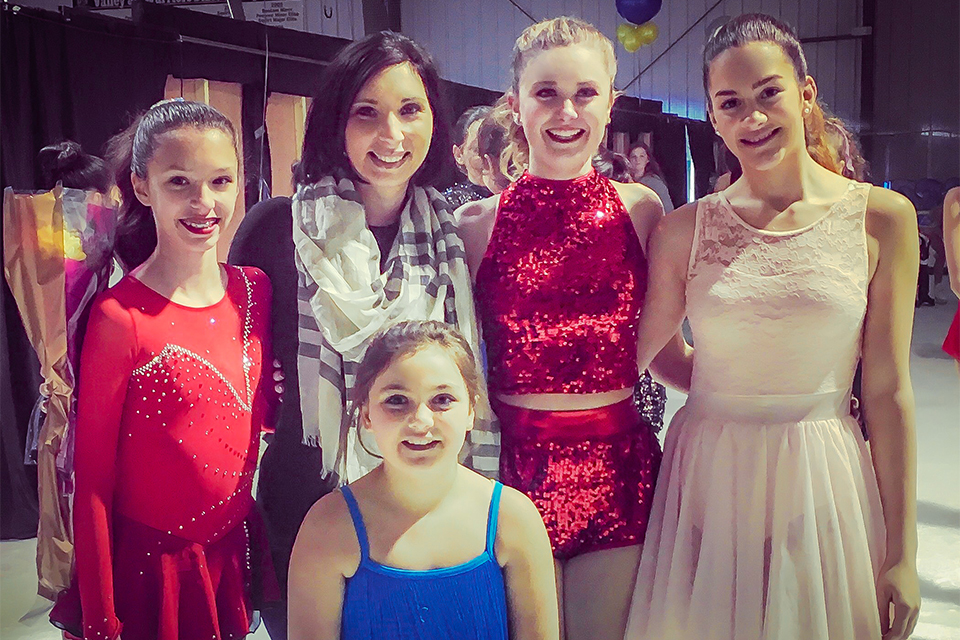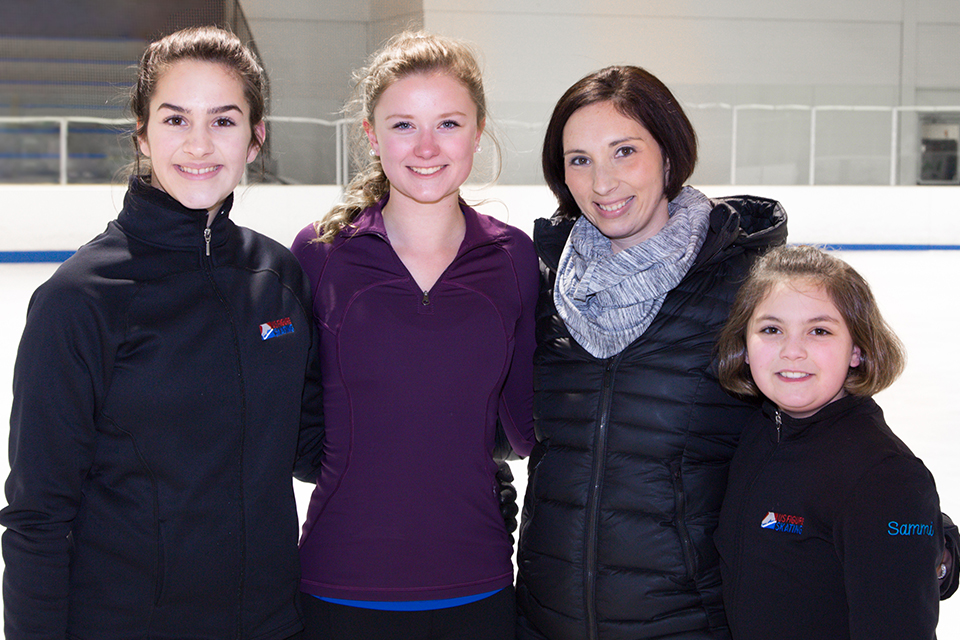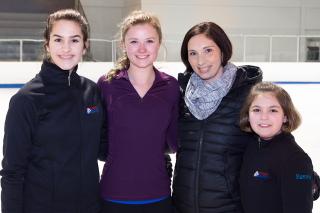We joined Julianne in the rink and learned how her unique approach to coaching empowers her students.
To her students, Julianne Pondelli '18C is much more than a skating coach—she’s a source of support and refuge in the rigorous sport of figure skating. On a typical evening, she can be found skating alongside her students at one of the six rinks where she teaches, carefully critiquing their movements with a gentle hand and encouraging word.
“Figure skating has been part of my life since I can remember,” said Pondelli. “It’s my goal to not only teach my skaters the fundamental and solid technique of the sport, but also teach them proper life lessons that will help them once they’re away from the arena.”
From an early age, Pondelli knew that coaching would be in her future. Between the ages of 9 and 22 she worked towards passing her senior level tests—a feat that only 3% of skaters achieve. Now a gold medalist in Freestyle and Moves in the Field, Pondelli has over 19 years of coaching experience under her belt.

Despite her success, Pondelli noticed a challenge in the figure skating industry—access to nutritional guidance. In an industry that demands perfection, skaters are often expected to have an ideal, petite frame—a contributing reason to the prevalence of eating disorders in the figure skating community.
“Nutrition education is so important in an athlete’s life,” Pondelli explained. “If I can give my students a positive experience in the nutrition field and show them how to have a positive attitude towards food, that would be great in addition to just teaching them how to skate.”
Pondelli realized that in order to provide sound advice to her skaters, she would need to become a Registered Dietitian. With support from faculty and advisors at Simmons, Pondelli enrolled in the Certificate in the Didactic Program in Dietetics (CDPD) and was able to fit her studies into a hectic, full-time workload and coaching schedule.
“Through the Simmons CDPD program I’ve learned how to be encouraging with kids,” shared Pondelli. “In a consultation or in the rink, I encourage them to follow their dreams and to always stay positive.”
Pondelli doesn’t take her position as a skating instructor lightly—she knows that a large part of being a successful mentor means leading by example. Between her passion for skating, dedication to nutrition, and value of higher education, Pondelli’s students recognize and admire her unique approach to coaching.
Figure skating definitely gives the skaters a sense of leadership and empowerment that they can take with them after their skating years.
Katelyn McCarthy, Abigail Flinn, and Samantha DeLucca are just a few of Pondelli’s many students. “Julie’s a really supportive coach and she’s really good at motivating all of her students,” said McCarthy. “No matter how you performed, she’s always finding something to be proud of.”
DeLucca echoed McCarthy’s statements and believes that Pondelli is notably different from any of the other coaches she’s met. “I would call her one of my best friends at the rink,” added Flinn. “I love her as a coach because I’m able to talk to her about anything, whether it’s skating-related or not.”

This type of feedback is indicative of Pondelli’s coaching style that extends beyond the rink. Whether it’s time management or learning to be graceful under pressure, Pondelli works with her students to help them find strength and confidence through their figure skating.
“Figure skating definitely gives the skaters a sense of leadership and empowerment that they can take with them after their skating years,” explained Pondelli. “An example is being able to take criticism constructively…you learn that criticism isn’t a bad thing, it’s just how you get better.”
In order to illustrate these lessons, Pondelli wanted her students to learn from the elite figure skaters competing at the recent Winter Olympics. Instead of simply watching a beautiful performance, she hoped that her students would try to emulate the confidence these skaters bring to their routines and their lives outside of the rink.
While teaching good sportsmanship is central to Pondelli’s coaching style, watching her students compete is still her favorite part of the job. “It’s amazing to see the finished product of everything they’ve worked so hard for,” she said. “I’m also extremely proud when they have the confidence to get back up after they fall. Being able to keep going until the end and not giving up is a very important quality to carry with you.”
This mentality is what sets Pondelli apart from her contemporaries. Instead of measuring her success in medals or points scored, Pondelli measures in life lessons and lasting impressions. When students emulate her positive attitude, or tell her that she’s inspired them to lead healthier lifestyles, she knows that she’s doing her job right—both on and off the ice.

